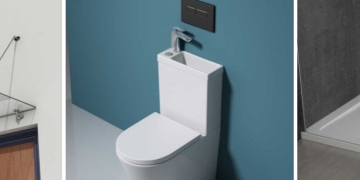When you look at health-testing brands, what often distinguishes one from another is transparency, ease of use, scientific backing, and post-test support. cerascreen scores well on many of these fronts.
One of the biggest selling points is that cerascreen lets you take your own sample (usually via a finger prick or other non-invasive method) at home, then send it to a professional laboratory for analysis. This “self-sample + external lab” approach blends convenience (do it yourself) with rigor (professional lab processes).
Many test providers stop at delivering a raw result (e.g. “blood marker X is 20 ng/ml”). cerascreen goes further: they provide background information, interpretation of what the numbers might mean, and recommendations on how to act on them. That helps bridge the gap between receiving data and understanding it.

Rather than offering only one or two tests (e.g. just vitamin D), cerascreen presents a broad portfolio: nutrient levels, hormone panels, allergen and intolerance screens, DNA tests, etc. Their strategy is to be a kind of “one-stop shop” for many personal health metrics rather than a niche provider.
cerascreen supports a mobile app to activate tests, view results, track sample status, and get product recommendations. Having a streamlined digital interface helps reduce friction in the process.
On their site, they advertise perks such as free shipping above a threshold, a 30-day refund policy, secure handling of data, etc. All of those policies give buyers more confidence to try out the service.
Because of that mix — convenience, scientific lab work, interpretative support, digital continuity, and buyer protections — cerascreen aims to position itself as more than just a test seller, but a partner in your health journey.
What you can find on cerascreen’s website
When you visit cerascreen online, you’ll see a well-structured portal with several major sections.
Shop / Self-tests
This is the core offering. Under the “Shop” section, the site lists categories like: food intolerance and food allergy tests, histamine intolerance, mineral / nutrient tests, vitamin D, vitamin B12, hormone tests, DNA / genetic tests, allergy tests, and all tests aggregated. You can pick tests individually or see bundles. Prices vary depending on complexity (e.g. a vitamin test is cheaper than a full DNA panel).
How it works / Process
They explain in a user-friendly way how you order a kit, take your sample, send it back, and then get results via their portal/app. The emphasis is on removing barriers – “no long waiting times” is a phrase they use.
Symptom Checker / Matching tests by symptoms
They offer a symptom filter: e.g. if you select fatigue, digestive problems, skin problems, etc., the site proposes tests that might align with those symptoms. So you don’t need to know exactly which blood marker you want — you can start with how you feel.
Health Portal / Blog / Editorial Content
Besides tests, cerascreen runs a blog or editorial arm. They publish science-backed articles on health topics: vitamins, sleep, nutrition, disease prevention, etc. This helps them build authority and engage users beyond just transactions.
Nutrition Plans / Coaching
Beyond diagnostics, the site offers extra services: nutritional plans, coaching support, often in combination with test results. This moves them into the wellness service space rather than just diagnostics.
Account & App
You can manage your orders, activate test kits, and see result dashboards via the cerascreen app or through your account portal. Tracking the status of your sample, seeing results, and getting suggestions are integrated.
Support, FAQs & Policies
They include FAQs, help centers, test kit instructions, data privacy / security guarantees, shipping & payment details, and returns / refund policies. They also clearly state benefits like free shipping above a certain order value, and a 30-day refund option.
Key distinctions compared to other brands
There are many companies in the health / diagnostics / wellness space. What helps cerascreen differentiate itself includes:
Breadth vs narrow specialization
Some competitors focus purely on one dimension (e.g. only DNA tests, or only microbiome, or only a few vitamins). cerascreen has a wide test catalog. That means a user with complex or multiple concerns can stay within one ecosystem rather than juggling several providers.
Emphasis on interpretability
While many brands give you numbers and reference ranges, cerascreen invests in explanations, contextualization, and actionable recommendations. This helps non-experts make sense of results.
Symptom-based guidance
Not all test platforms allow you to begin from symptoms. cerascreen’s symptom filter helps users pick tests relevant to how they feel, which is more accessible for lay users who don’t know what markers to test.
Integrated service offering
Many labs just analyze samples; cerascreen layers in coaching, nutrition planning, and follow-up suggestions. That converts their offerings from “one-off test” to “ongoing health pathway.”
Transparent policies
Features like free shipping above a threshold, refund policies, secure data handling, and a visible rating from customers build trust. Some competing services may hide such policies or make them cumbersome.

Digital convenience
The app, the activation workflow, status tracking — these make the user experience smoother compared to brands that rely wholly on mail correspondence. A seamless digital interface can make or break customer satisfaction.
Branding & positioning
cerascreen positions itself as accessible, understandable, and reliable. They emphasize that they don’t want to overwhelm users with technical jargon, but rather to explain the “why” behind numbers.
The user journey with cerascreen
Putting it all together, here’s how a user might interact with cerascreen:
- A user visits cerascreen and uses the symptom filter “fatigue” or “skin problems.”
- The site suggests relevant tests (e.g. vitamin D, allergies, nutrient panel).
- The user picks a test, orders a kit.
- The kit arrives. User takes sample per instructions (e.g. a finger prick or swab).
- The user sends the sample back using prepaid mail.
- Using the account or app, the user tracks the status of the sample.
- Once analyzed, results are published in their dashboard, with explanations, what values are optimal, what deviations mean, and suggestions (diet, supplementation, doctor follow-up).
- The user can optionally engage in nutritional coaching or tailored health plans based on results.
That process is smoother, more holistic, and more supportive than “you order, send, get numbers, and you figure it out on your own,” which is sometimes how other test brands work.










